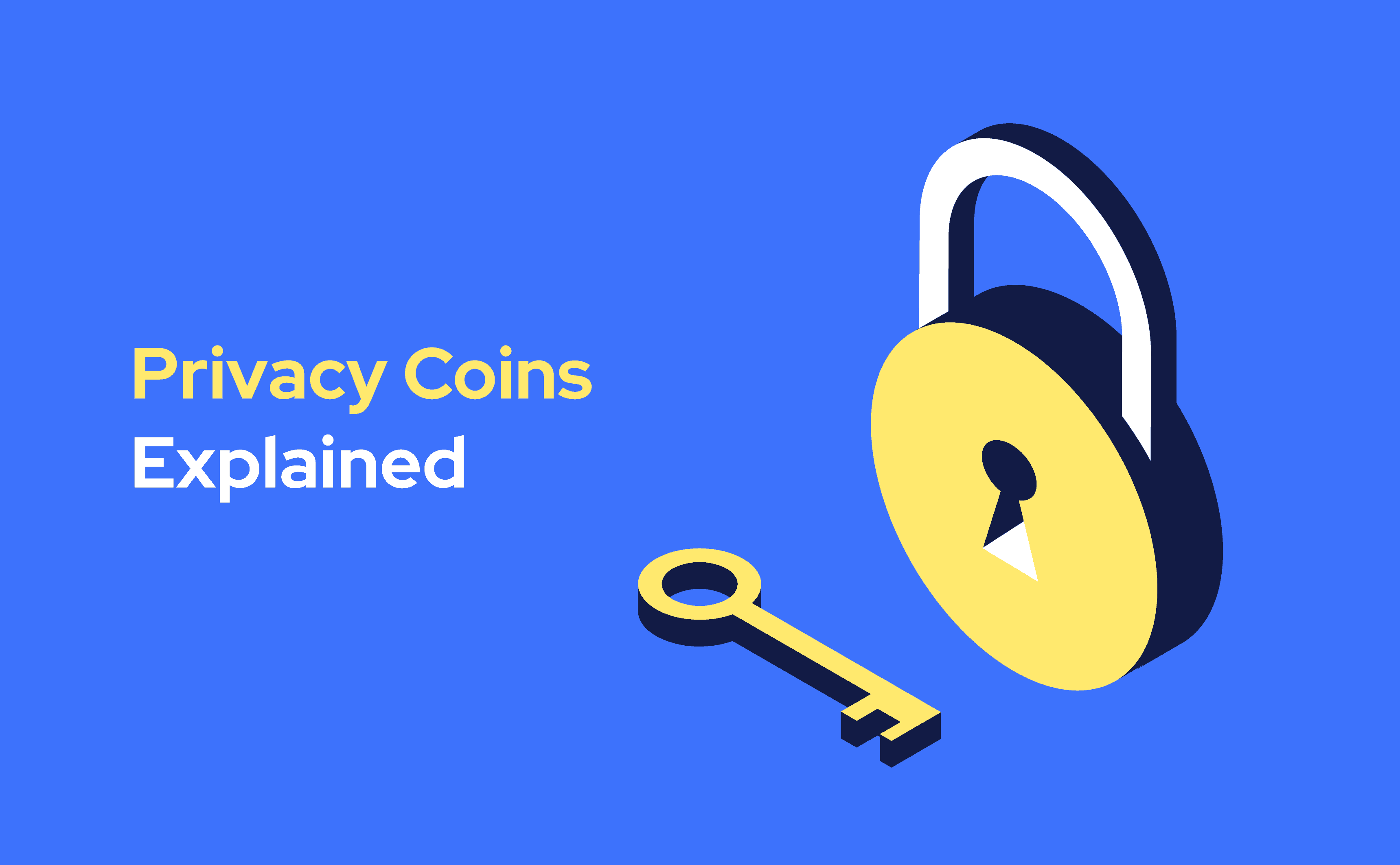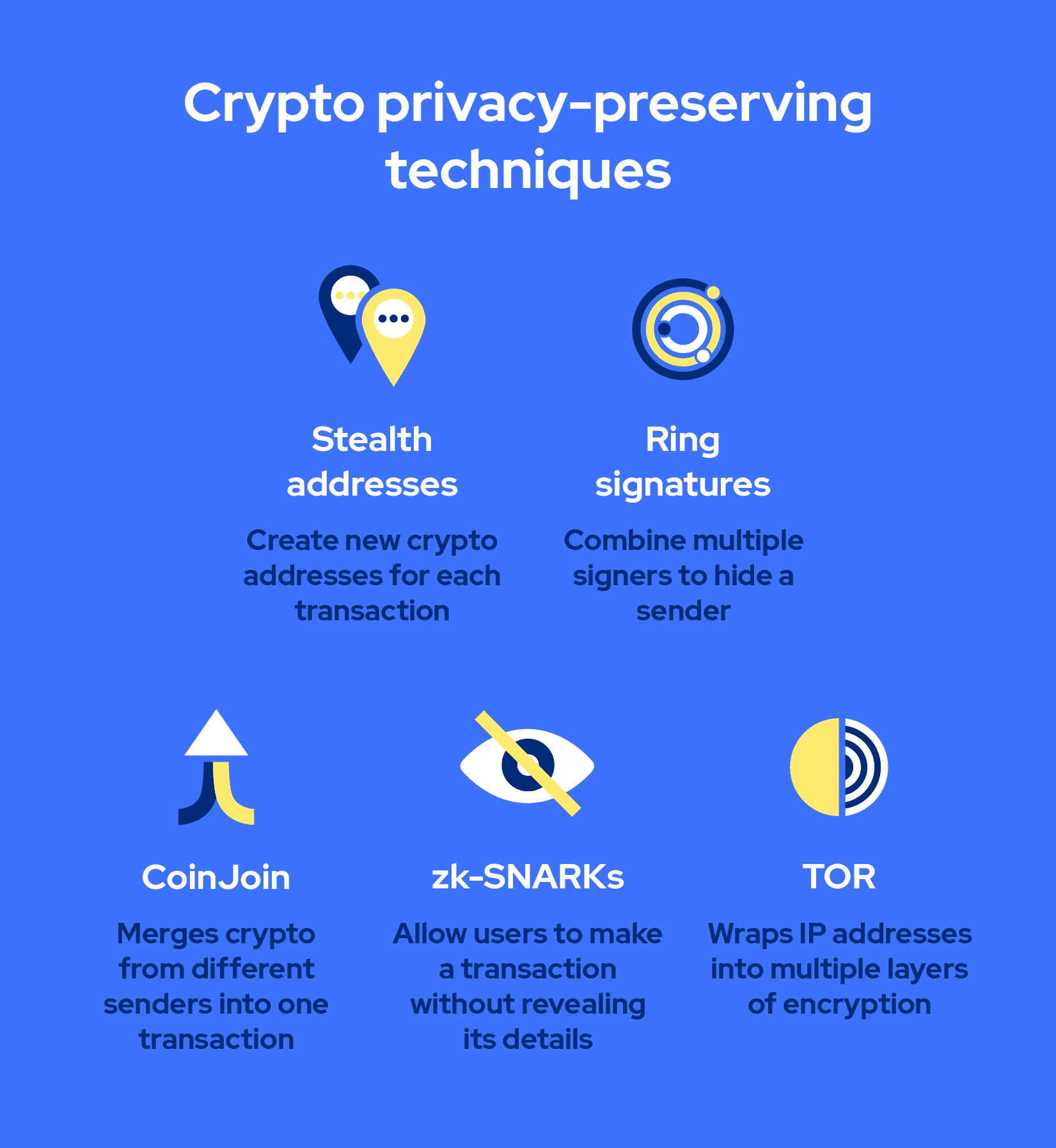Privacy Coins Explained
One of the most popular features of cryptocurrency are privacy and anonymity. These characteristics help users to hide identities and remain anonymous in terms of transactions they conduct. While there are concerns about the privacy of Bitcoin, blockchain users are looking for new, more private options.

This is where privacy coins – cryptocurrencies that implement additional security features to ensure that all data about users and their activities on the blockchain is fully protected – come in.
In today’s SpectroCoin blog post, we present our insights into privacy coins and how they work, and discuss the overall importance of privacy as it relates to the blockchain.
Is Bitcoin private?
The original idea of Bitcoin lies in decentralization, which ensures maximum anonymity compared to traditional finance. However, the issue of Bitcoin privacy goes in hand with the notion of transparency.
As a result of a record-keeping system called public ledger, Bitcoin transactions are unchangeable and can be viewed by anyone. In this way, Bitcoin is seen more as of a pseudonymous nature, as not all information is protected by the blockchain.
Thus, the essence of a public blockchain makes transactions traceable, though this depends heavily on the privacy-preserving features that the cryptocurrency project employs. While Bitcoin is private, it also carries the highest level of transparency.
How do privacy coins work?
Different privacy coins apply distinct techniques to ensure that users’ identities and transactions are untraceable. Some of them even combine multiple methods to prove anonymity. Five projects that are known to be genuinely private are Dash, Zcash, Monero, Verge, and Bitcoin Private.
One such technique is stealth addresses used by the Monero project. This method involves creating new crypto addresses every time a user receives a transaction. Assigning multiple addresses to a single person removes the possibility of someone linking future payments to one’s wallet address.
Another famous method of hiding a sender’s identity is ring signatures. When using this technique, multiple signers are combined into a ring to hide a specific sender. The more additional parties in the ring, the harder it is for someone to link a sender to the transaction. The aforementioned Monero, for example, employs both ring signatures and stealth addresses to boost the security of its coin.
What is more, CoinJoin collects cryptocurrency from diverse senders and merges it to one transaction. Then, a third party shuffles all the coins and forwards them to the recipients. To further increase intraceability, each receiver is assigned a new address to which the coins are sent. Although this method was first proposed as a feature of Bitcoin, it has gained the most popularity while used by Dash.
Moreover, zk-SNARKs, or Zero-Knowledge Succinct Non-Interactive Arguments of Knowledge, allow you to prove that a transaction is valid without having to disclose its details (sender, receiver, and amount). This technique also enhances the scalability of the blockchain. zk-SNARKs are used by Bitcoin Private and Zcash.
Lastly, The Onion Router (TOR) technology removes the ability to trace your IP address and also decreases the possibility to find out your public crypto address. This is achieved by wrapping an IP address in a series of layers of encryption. While TOR can be used with any blockchain, some privacy coins like Verge include it as the default.

Final thoughts
To sum up, different viewpoints exist that concern privacy coins. While some see them as an essential aspect to ensure complete anonymity of financial data, others might associate privacy coins with activities of an unfair nature.
As discussed above, privacy coins were created to ensure complete security of people’s information. Since personal data is an exceptionally valuable asset now, it is essential that individuals not only have control over their money but can also choose the level of privacy they want to possess.
Furthermore, privacy-preserving techniques have further enhanced the initial idea of blockchain technology. Although transparency is considered the top priority of blockchain, it might pose a risk in terms of privacy, giving access to another person’s complete financial history with just an account number.
Finally, despite the controversial aspects surrounding privacy coins, we believe that privacy-preserving techniques can be considered an interesting development in blockchain technology.
If you are interested in purchasing privacy coins, you can get DASH at SpectroCoin.
What is your opinion on privacy coins? Share your insights on our social media channels, we are eager to hear them!